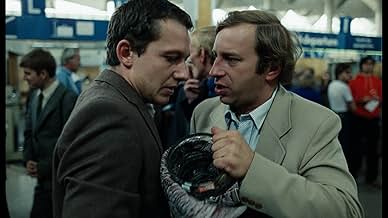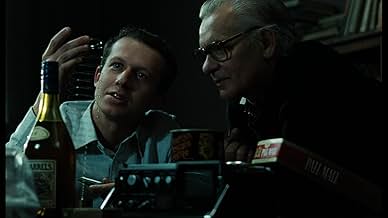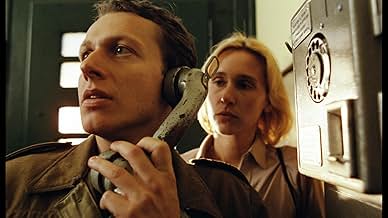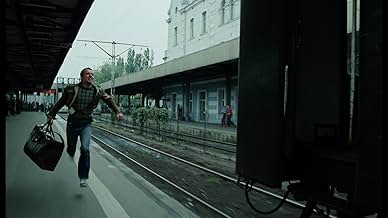Witek corre dietro a un treno. Seguono tre variazioni su come un incidente così apparentemente banale potrebbe influenzare il resto della vita di Witek.Witek corre dietro a un treno. Seguono tre variazioni su come un incidente così apparentemente banale potrebbe influenzare il resto della vita di Witek.Witek corre dietro a un treno. Seguono tre variazioni su come un incidente così apparentemente banale potrebbe influenzare il resto della vita di Witek.
- Regia
- Sceneggiatura
- Star
- Premi
- 2 vittorie totali
Recensioni in evidenza
Within the context of the socialist police state of Poland at that time he asks us if we are supposed to fight the system we live in, be part of it and change it from the inside, or whether being happy in life is the one thing we are actually responsible for? In other words, is it worth fighting against everything we don't like? Is accepting it no different from selling out? Should we just try to make the most of it? Kieslowski gives us no answers, which is why this film, as well as all other Kieslowski films I have seen, seems so honest, so true to life. The only honest answer to the hard questions is "I don't know"
The film is also graced with careful, subtle characterizations, beautiful but gritty camera-work, a true comprehension of human emotions as well as of human conflict, and the style and brilliance of a man who truly understands.
I know this: Kieslowski is a master.
What did one reviewer mean by saying that we could not understand fully? i know that is probabaly true and would like to know
Yet, this is probably one of my all time favorite movies eventhough I am not a loyal Kieslowski fan. The subject of the movie is what makes the whole difference. A very interesting issue about life that I am sure is bothering a lot of people in the world. Very human plot with a lot of symbolic scenes. Do not expect to fully grasp the idea by watching it only once. And absolutely do no refrain from watching this movie at all, if you are a serious movie watcher. I give it a very enthusiastic 10.
The only flaw that I can think of is the fact that this film is probably very hard to understand for non-Poles as it is so very... Polish. And although the message the movie tries to convey seems to be more universal, you probably cannot get the whole of it if you were not born in a country located between Russia and Germany.
And if you compare this one to last year Peter Howitt's flick "Sliding Doors"... See how films of similar content can differ?
Lo sapevi?
- QuizAlthough the movie was made in 1981, it had its premiere in 1987. The delay was because of state-imposed censorship due to the film's political content.
- Citazioni
1. Werner: I intend to give you my current thoughts on an idea I've been committed to for 40 years. Every generation yearns for light. It needs reassurance and faith that the world can be better and a fairer place. This yearning which is older than Marx and younger than Marx, is like a drug. Early in life it brings joy, because the light seems so near and within reach. At life's end it brings bitterness, because the light has grown once again. In these 40 years I've lived through many things and the light seems further away than ever before, and thus I shouldn't encourage you, but you can be sure of one thing: without bitterness and this hope, life would be pitiful indeed.
- Versioni alternativeThe film was scheduled for release in 1981, but was suppressed by the Polish government due to its criticism of Communist regime. The film was eventually released in 1987 with some of the politically sensitive material cut (these cuts totalling roughly 9 minutes). The film has since been released in a uncut form, however one of the scenes involving Witek being beaten by the train guard remains lost.
- ConnessioniFeatured in Arena: The Ten Commandments of Krzysztof Kieslowski (1990)
I più visti
- How long is Blind Chance?Powered by Alexa
Dettagli
Contribuisci a questa pagina


































